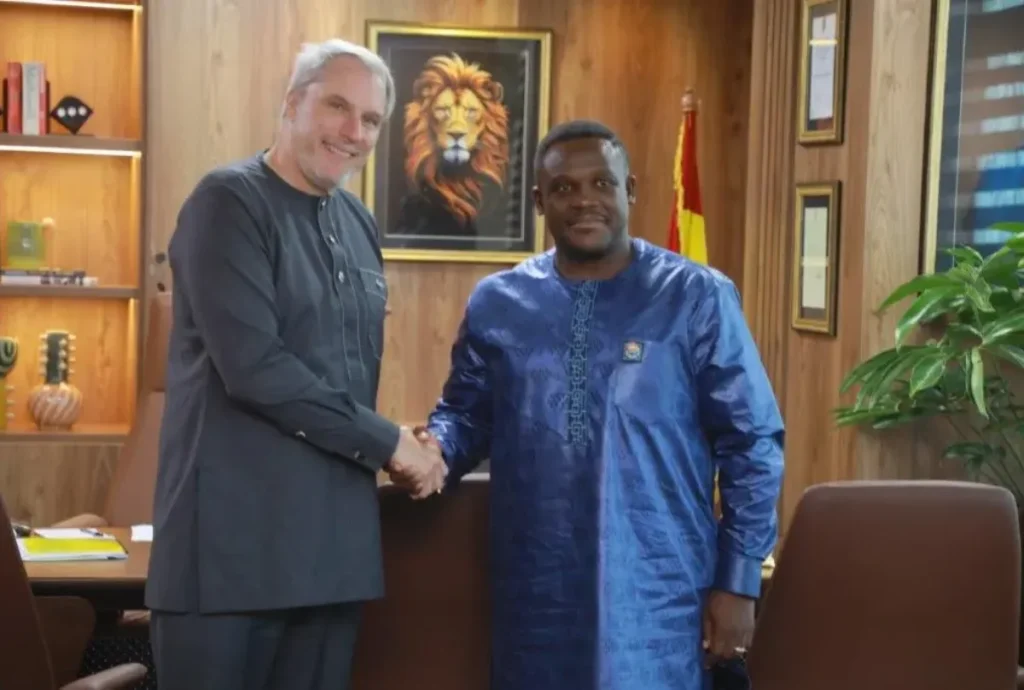Nnenna Ajanwachukwu has over 15 years experience cutting across financial services and payment industries, including consulting experience.
She moved with her family to South Africa at 11, lived and studied in Pretoria, and started her career in South Africa (2005) in business development and marketing.
Nnenna, like many Nigerians, who stay away from the country for a long time, had this longing to return home and do her part in nation-building. So, she returned to Nigeria and began her banking career. Her experience in the banking industry spans economic analysis, market and risk management, treasury, assets and liability management.
She has a Master’s Degree in Economics from the University of Venda in South Africa and a Bachelor’s (Hons) Degree in Economics from the University of Pretoria in South Africa.
Making the pivot to tech
After working in the traditional banking sector for some years, Nnenna made the switch from the banking sector to the fintech space in 2018, working as the Business Development Manager, Transport Solutions, Industry Ecosystems at InterSwitch (one of the largest payment and switching companies in Nigeria). Like many growth enthusiasts, she wanted fresh air in a different field.
Her experience in the technology innovation space cuts across market penetration strategies, business and product development, account management and financial modelling with a proven track record of sales and driving revenue growth in both B2B and B2C.
Speaking on working in traditional banks and fintech, she believes both sectors are vastly different and only similar in a few cases.
“With the financial institutions, it used to be just normal traditional banking solutions, saving your money, providing loans and checks etc… What we do with fintech is that we look for areas where there are problems and develop solutions using technology.
“We can already see a few collaborations as against what it was like ten years ago when I was in the banking sector, because fintech companies are helping banks do better at what they do by producing technological solutions.”
Nnenna believes fintech companies are providing real solutions to real problems as evidenced by the amount of funding that investors have been and continue to pour into the space.
“Anyone investing in a business must have done some due diligence to find out if the startups are producing or able to do what they say they will. An example is M-Pesa in Kenya, a fintech solution to inclusive banking. Many people still do not have bank accounts but they have phone numbers and with this, they can receive money.”
“There are too many problems to solve. Therefore, saying so many people coming in are not adding value wouldn’t be accurate because the market is so broad. You could build a fintech to provide solutions in oil and gas payments or a fintech to facilitate logistics or one for e-commerce allowing people to pay for products and services without stress.
“We are talking about building platforms for ecosystems.”
What the Fintech space needs
Collaboration is what Nnenna preaches as opposed to competition, especially so as to share ideas and improve the workings of the tech ecosystem.
She says that. “once there’s collaboration there will be seamlessness. When you build on what a company already has existing, it saves you time to focus on other things you need to do, rather than trying to build your stuff from the scratch.”
Challenges for Women in Fintech
As a woman in the Fintech space, Nnenna says gender is never a consideration for roles or benefits at Interswitch. Recall that Interswitch is the only Fintech company that made the list for the top 25 women to work and grow their career in tech.
However, she admits that gender disparity in the fintech space is a global phenomenon.
“What we see is glaring male dominance. Female leaders face a lot of challenges in this space, from more difficulty raising funds to many times being the only woman in a board room meeting with about ten men. I have also experienced this one time when I was on a panel of seven people and I was the only female on it. I remember thinking they should have balanced it with equal gender representation.”
Nnenna says the problem of representation may be because women do not show interest in STEM right from primary and secondary school.
She believes that changing this at the root by encouraging more girls to go into STEM will increase the number of women available in the tech space.
“While asking the question of equal representation, I realised that there are a few women who choose stem subjects in secondary schools or at the university. Majority of them go for social science courses while the males go for science and tech-related courses.
“So, we need to encourage more young girls to take interest in these courses from primary school so that they are groomed to be in the stem world and maybe in the fintech space.”
Nnenna adds that the gap can be closed when employers make intentional efforts to hire more women to correct the glaring gender gap in the Fintech space.
She buttressed this point using the system employed by the South African government to create a semblance of balance between the blacks and the whites after a long period of marginalisation by the whites.
Since white South Africans had an unfair headstart in education and other factors, it became mandated that for every white employed a certain number of blacks must also be employed to balance out the ratio regardless of their level of education.
The future
Does she have plans to be a founder? Nnenna says there is no need.
“I currently run a business in the transport segment in InterSwitch and I am bound to collaborate with others to provide solutions. So, I am guaranteed a great career trajectory either in my current position or collaborating with others.
“I also want to drive conversations, movements, bringing different stakeholders, policymakers, regulators, technology providers into the space.
“I love public speaking, I love engaging with stakeholders in the industry, to bring them together to drive and harness what I call the Fintech boom in Nigeria and Africa. In that regard, I am currently studying for my PhD to understand the economics of financial innovations, so as to enable financial inclusion for the technologically excluded.”
Nnenna is not the one you should sleep on.











